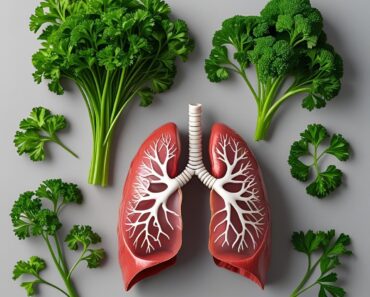Used for thousands of years across traditional medicine systems, ginger (Zingiber officinale) is more than just a flavorful spice.
Modern research confirms what ancient healers already knew: ginger has powerful therapeutic effects that can aid in treating a wide range of diseases.
Packed with bioactive compounds like gingerol, shogaol, and zingerone, ginger offers anti-inflammatory, antioxidant, antimicrobial, and pain-relieving properties – making it one of the most potent natural remedies available today.
1. Arthritis and Chronic Inflammation
Chronic inflammation is at the root of many diseases, including arthritis, joint pain, and autoimmune disorders.
How Ginger Helps:
- Contains gingerol, a natural anti-inflammatory compound
- Inhibits production of pro-inflammatory cytokines and enzymes like COX-2
- Reduces swelling, stiffness, and pain in joints
Studies:
A 2014 study found that daily ginger extract significantly reduced pain and improved mobility in patients with osteoarthritis of the knee.
How to Use: Drink ginger tea twice daily or take 500–1000 mg of ginger extract capsules.
2. Nausea and Motion Sickness
Ginger has long been used as a natural remedy for nausea, vomiting, and dizziness – especially in pregnant women and travelers.
Why It Works:
- Stimulates digestion and increases saliva flow
- Blocks serotonin receptors in the gut, which trigger nausea
- Calms the stomach without causing drowsiness (unlike some medications)
Effective For:
- Morning sickness
- Motion sickness
- Post-operative nausea
- Chemotherapy-induced nausea
Tip: Chew fresh ginger, sip ginger tea, or take ginger lozenges before traveling.
3. Indigestion and Bloating
If you often feel bloated, sluggish, or gassy after meals, ginger may help.
Digestive Benefits:
- Stimulates gastric emptying, helping food move smoothly through the gut
- Relieves bloating, cramps, and discomfort
- Enhances digestive enzyme activity
A study found that ginger sped up stomach emptying by up to 50%, helping relieve functional dyspepsia (chronic indigestion).
Use: Drink warm ginger tea after meals or add grated ginger to soups and stir-fries.
4. Heart Disease and High Cholesterol
Ginger supports heart health in multiple ways and may help reduce the risk of cardiovascular disease.
Benefits:
- Lowers LDL (bad) cholesterol
- Increases HDL (good) cholesterol)
- Reduces triglycerides and blood pressure
- Prevents blood clotting and improves blood circulation
Study Insight:
A 2016 study showed that taking 5g of ginger daily significantly reduced total cholesterol, LDL cholesterol, and triglycerides in participants.
Tip: Add raw ginger to smoothies or take 1000–1500 mg of ginger supplements daily.
5. Type 2 Diabetes and Insulin Resistance
Ginger helps balance blood sugar levels and improves insulin sensitivity, making it valuable for people with Type 2 diabetes or prediabetes.
How It Helps:
- Lowers fasting blood glucose and HbA1c
- Reduces insulin resistance
- Improves lipid metabolism in diabetic patients
A 2015 study published in the Iranian Journal of Pharmaceutical Research found that consuming 2g of ginger powder per day for 12 weeks lowered fasting blood sugar by 12%.
Use: Combine ginger with cinnamon and turmeric for a powerful blood-sugar-balancing tea.
6. Cold, Flu, and Respiratory Infections
Ginger has strong antiviral and antimicrobial effects, making it excellent for boosting immunity and fighting infections.
How It Helps:
- Warms the body and induces sweating, helping to break fevers
- Soothes sore throats, coughs, and nasal congestion
- Fights respiratory infections like bronchitis and sinusitis
Home Remedy: Simmer sliced ginger, lemon, and honey in water for a soothing immune-boosting drink.
7. Menstrual Pain and Cramps
For women suffering from dysmenorrhea (painful periods), ginger offers fast and effective relief.
Why It Works:
- Acts as a natural muscle relaxant and anti-inflammatory
- Inhibits prostaglandins, which trigger uterine contractions and pain
- Works as effectively as some over-the-counter NSAIDs
A 2009 study found that ginger powder (250mg, 4x daily) was as effective as ibuprofen in reducing menstrual pain.
Tip: Begin using ginger 2–3 days before your period starts and continue through the first few days of menstruation.
8. Obesity and Weight Management
Ginger can help with weight loss by increasing thermogenesis, reducing appetite, and boosting fat metabolism.
How It Helps:
- Increases calorie burn and energy expenditure
- Reduces hunger and cravings
- Improves digestion and fat breakdown
Research suggests that ginger supplementation may help reduce body weight, waist-to-hip ratio, and body fat percentage in overweight individuals.
Use: Drink ginger-lemon tea in the morning or add to detox drinks.
9. Cancer Prevention and Support
Ginger contains compounds that may help prevent cancer cell growth and reduce tumor formation.
Anti-Cancer Properties:
- Inhibits the growth of colon, prostate, ovarian, and breast cancer cells in lab studies
- Reduces inflammation and oxidative stress – key factors in cancer development
- Supports cell apoptosis (programmed cell death) in damaged or abnormal cells
While not a cure, ginger can be a supportive therapy alongside cancer treatments, especially for managing nausea and fatigue.
10. Cognitive Decline and Alzheimer’s Disease
Emerging research suggests that ginger may support brain health and memory, particularly in aging individuals.
How:
- Enhances cognitive function and memory recall
- Reduces neuroinflammation and oxidative stress in the brain
- Promotes the production of brain-derived neurotrophic factor (BDNF)
One study in middle-aged women showed that ginger extract improved working memory and reaction time.
Use: Mix fresh ginger into morning smoothies or teas to keep your brain sharp.
11. High Blood Pressure (Hypertension)
By relaxing blood vessels and improving circulation, ginger may help naturally lower blood pressure.
Mechanism:
- Acts as a natural vasodilator, widening blood vessels
- Inhibits ACE enzyme activity (similar to common blood pressure meds)
- Balances electrolytes like potassium and magnesium
Use: Drink ginger water daily or add it fresh to salads and soups.
12. Gut Health and Microbiome Balance
Ginger supports a healthy gut environment by balancing bacteria, reducing inflammation, and aiding digestion.
Benefits:
- Enhances gut motility and nutrient absorption
- Reduces intestinal gas and fermentation
- Inhibits growth of harmful pathogens like H. pylori
Maintaining a healthy gut microbiome is key to preventing numerous diseases—including autoimmune disorders, obesity, and even depression.
Best Ways to Use Ginger
| Form | How to Use | Benefits |
|---|---|---|
| Fresh root | Slice, grate, or chew raw | Cooking, tea, digestion, nausea |
| Dried powder | Add to smoothies, capsules, or tea | Supplements, blood sugar, inflammation |
| Ginger tea | Steep slices or powder in hot water | Colds, pain, cramps, immunity |
| Ginger oil | Topical or aromatherapy | Pain relief, stress, inflammation |
| Candied/crystallized | Use sparingly for nausea relief | Travel sickness, upset stomach |
Caution: Ginger is generally safe, but high doses (over 5g/day) may cause heartburn or digestive discomfort. If on blood thinners, consult your doctor before regular use.
Ginger isn’t just a kitchen spice – it’s a powerful natural healer that can help prevent and manage a wide range of diseases.
Whether you’re struggling with inflammation, chronic pain, high blood sugar, or indigestion, ginger may be the gentle yet effective solution you need.







